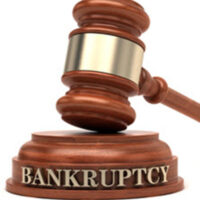How Does Bankruptcy Handle Secured Property?

Secured loans are loans where the creditor can take property back if the loan is not paid. The most common loans are for our home and vehicles where the creditor can foreclose on the home or repossess the vehicle if the loan is not paid.
Can They be Discharged?
Secured loans can be discharged in bankruptcy, but many times, the debtor does not want to have the loan discharged and the debtor may want some avenue to keep the secured property (although oftentimes, like with a house that’s worth less than what is owed, the debtor may get a benefit from giving up the home, and owing no money).
Remember that the debt that you owe on a secured loan can be discharged, but the lien cannot. This means that the creditor can still repossess, or foreclose on the property, even if the debt is discharged in bankruptcy if the loan is not paid.
When you have a secured debt bankruptcy law gives you a few options.
Surrender the Property
The first option is to simply surrender up the property. Again, imagine a home that is worth less than what you owe, or a car that is “upside down” in equity. In these cases, the debtor may want to wash his hands of the property and the debt and start over again when the bankruptcy is over.
Keep and Reaffirm
You can also opt to keep the property and reaffirm the debt. This means that the debt will remain valid even after the discharge. The court must agree to allow you to reaffirm the debt and you must show that you have the ability to pay the reaffirmed debt.
Reaffirming debt is usually best when you have an asset that you need (like a home or a car) and you have a demonstrated history of being able to make the payments.
Reaffirming the debt can be very dangerous if you are behind in the payments. In fact, you may not even have the option to reaffirm the debt if you are behind on payments. The good news is that if you are behind on payments on a secured property, you have the option of paying the payments that have been missed through the course of the Chapter 13 plan.
Redeeming Property
You also have the option to redeem property. The good news is that you redeem property for what it’s worth–not what you owe. This can lead to a situation where you get to keep property at a reduced value than the loan.
The bad news is that to redeem, you need to pay off the value of the property in one lump sum, something many bankruptcy debtors cannot do.
The West Palm Beach bankruptcy lawyers at Kelley Kaplan & Eller at 561-264-6850 can help you deal with secured loans in bankruptcy.
Sources:
flsb.uscourts.gov/reaffirmation-agreement#:~:text=A%20reaffirmation%20agreement%20is%20an,or%20take%20back%20its%20collateral



